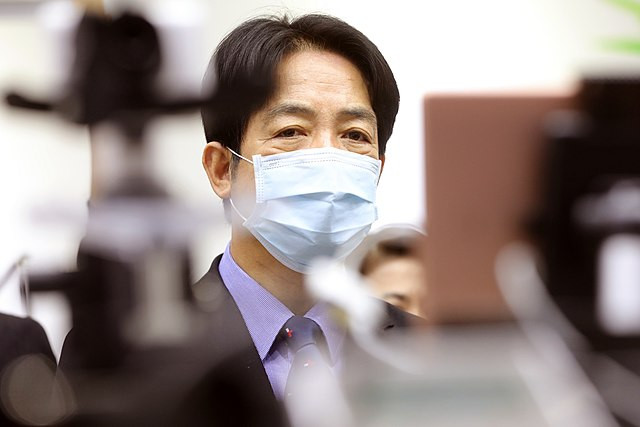Taiwan's voters have handed a historic third consecutive presidential win to the ruling Democratic Progressive Party (DPP), electing Lai Ching-te as the new president. This victory comes despite stern warnings from China about the heightened risk of conflict should the DPP secure another term.
Lai Ching-te, Taiwan's current vice president, claimed victory on Saturday evening, a momentous occasion celebrated as a "victory for the community of democracies" by Lai himself. His election represents a clear stance by Taiwan in favor of democracy over authoritarianism, a decision that carries profound geopolitical implications.
Results from Taiwan's Central Election Committee indicated that Lai secured approximately 40 percent of the popular vote, with his main rivals trailing behind. This election, fought over various domestic issues and the delicate matter of dealing with China, showcases Taiwan's robust democratic credentials.
Lai's victory is perceived as a validation of the DPP's stance that Taiwan is a sovereign nation, a belief that fundamentally conflicts with China's view of the island as part of its territory. Beijing, under leader Xi Jinping, has been increasingly assertive and aggressive towards Taiwan, with Xi vowing that "reunification" with Taiwan is an "historical inevitability."
The DPP's stance, emphasizing that Taiwan's future must be decided by its 23.5 million people, has irked Beijing, which had warned Taiwan's voters against electing Lai Ching-te, labeling him a trigger for cross-strait confrontation and conflict. Lai's running mate Hsiao Bi-khim, a former top envoy to the United States, was also elected as Vice President, further reinforcing the DPP's resolve.
The election result is a significant setback for Beijing's aspirations and strategies towards Taiwan. It is also a blow to Taiwan's Kuomintang (KMT), which favors warmer relations with Beijing and has not held the presidency since 2016.
Analysts predict that China might escalate economic and military pressure on Taiwan to express its displeasure or wait for a more forceful response when Lai takes office in May. However, Taiwan's security officials, anticipating China's reaction, do not expect any large-scale military actions immediately following the election.
The United States, Taiwan's biggest international backer, has stated that it will uphold its longstanding policy toward Taiwan regardless of the election outcome. The Biden administration is expected to send an unofficial delegation to Taipei, a symbolic act of support for Taiwan.
Lai's approach to foreign policy and cross-strait relations is expected to largely mirror that of outgoing president Tsai Ing-wen. This continuity, while unw
elcome in Beijing, is seen as crucial for maintaining the status quo across the Taiwan Strait.
The election's focus on domestic issues like the economy, unemployment, and housing costs, alongside the more prominent matter of relations with China, reflects the multifaceted challenges facing Taiwan. Lai Ching-te, a Harvard alumnus and member of the DPP, emerged as a preferred choice over his opponents, Hou Yu-ih of the KMT and Ko Wen-je of the Taiwan People's Party, who attracted younger voters seeking an alternative to the major parties.
China's aggressive stance toward Taiwan, including military intimidation tactics, underscores the high stakes involved in the election. Beijing's refusal to engage in talks with Lai, whom it labels a "separatist," heightens tensions in a region already fraught with geopolitical complexities.
The US's continued support, demonstrated through the dispatch of unofficial delegations following the election, signals its commitment to Taiwan, despite the unstable nature of Sino-American relations. The recent military talks between China and the US, while not resolving tensions surrounding Taiwan, indicate an effort to stabilize a relationship marked by mutual suspicion and competition.
Lai Ching-te's victory in Taiwan's presidential election is not just a triumph for the DPP but a reaffirmation of Taiwan's democratic values in the face of increasing pressure from China. As Lai prepares to take office, the global community watches closely, understanding that Taiwan's future decisions will have significant implications for regional stability and international relations.





